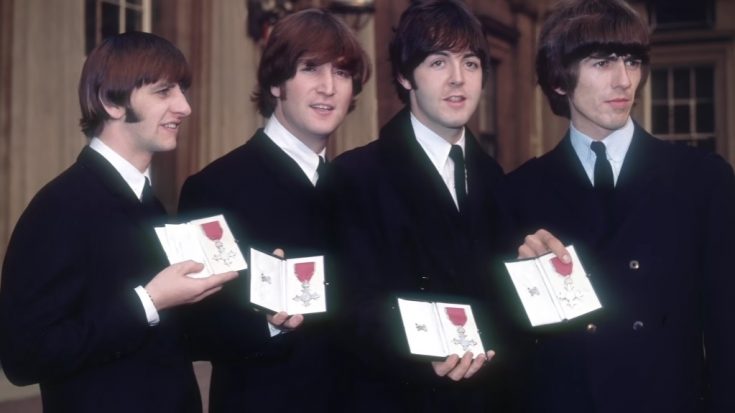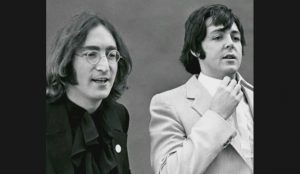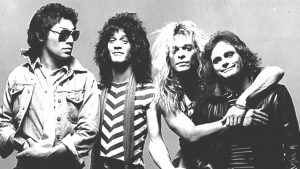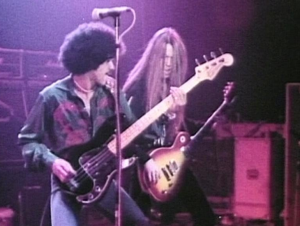The Musicians Who Always Disliked The Beatles

via FREE MOVIES / YouTube
It’s not hard to argue that the Beatles are among the most beloved bands of all time. A pioneer of pop music, they were the frontrunners of the so-called “British Invasion,” and even to this day, their impact is still integral in the music business. However, not everyone in the industry admires the Fab Four, and the musicians listed below have some pretty rigid comments regarding the band’s music and the massive popularity that surrounded them. You can check it out here.
Harry Connick Jr.
Harry Connick Jr. was a staunch supporter of music from before the advent of rock and roll, praising the greatness of crooners like Frank Sinatra while slamming groups like the Beatles for failing to create music in the same vein. In his opinion, the music of the Beatles is “for second graders.”
Quincy Jones
Since the 1950s, Quincy Jones has been active in the recording industry as a trumpet player, producer, arranger, and songwriter. By the time the Beatles became popular in the United States in the mid-1960s, he was already well-established in the industry. In addition, Jones was not one of the millions of new followers who were swept up in Beatlemania. “Paul was the worst bass player I ever heard. And Ringo [Starr]? Don’t even talk about it,” Jones told Vulture.
Glenn Gould
Glenn Gould, a classically trained musician who was well-versed in music theory, wasn’t taken with the Fab Four. For Gould, the Beatles were a lot of fluff and what Gould termed “ultra simplistic concepts” in their music, which he criticized.
Ray Davies
The Beatles’ Revolver album from 1966 is universally regarded as a classic. However, when Ray Davies, singer for the Kinks, was given a copy of the album early so that he could evaluate it in detail for the music journal Disc & Music Echo, he didn’t hesitate on giving it some thumbs down. Although it has all the makings of a classic, Davies was left feeling quite unsatisfied. It was obvious that Davies despised “Yellow Submarine,” writing: “This is a load of rubbish, really. … I think they know it’s not that good.”
Pete Townshend
The Who, like the Beatles, sprang from the British rock scene of the mid-1960s, but they were more like the angry youth of the time: loud, heavy, and violent. While appearing on the youth-focused BBC discussion show A Whole Scene Going in 1966, Townshend expressed disappointment in the sound quality of contemporary pop. In particular, he criticized the Beatles’ use of recording equipment, which he claimed was subpar.
Todd Rundgren
During an interview with the British music magazine Melody Maker in 1974 to promote his album Todd, Rundgren strayed from the topic and talked about John Lennon’s solo work. “All he really wants to do is get attention for himself, and if revolution gets him that attention, he’ll get attention through revolution,” Rundgren commented.
Ginger Baker
Ginger Baker hated everyone, so it’s not surprising that the Beatles belong on the list. In an interview with Forbes from 2015, Baker stated his distaste for heavy metal bands and a specific Beatle who can’t read or write musical notation. “Even Paul McCartney needs someone to write it down for him. And he thinks that’s good,” Baker explained. “There was an article where he said that if he learned to read music, he might not be able to write as well.”
Lou Reed
“I never liked the Beatles,” Lou Reed once said. “I thought they were garbage. If you said, ‘Who did you like?’ I liked nobody.” Understandably, Reed wouldn’t be bound by conventional wants, given that the Velvet Underground was unlike any other rock band of its day.
Charles Mingus
Charles Mingus didn’t only disapprove of the Beatles’ music or philosophy; he actively ridiculed and questioned their methods. In his memoirs, Mingus echoed the sentiments of many by calling the Beatles “thieves and liars” for allegedly stealing the music of Black musicians.
Elvis Presley
According to documents preserved in the National Archives, the King of Rock and Roll, Elvis Presley, expressed concern about the future of the United States in a 1970 letter to President Richard Nixon. Presley was particularly concerned about the influence of drugs, hippies, and the Black Panther Party. Presley said the Beatles had a major bad effect on young people in the United States, who came to the country, made their money, and went back to England “where they promoted an anti-American theme.”





















